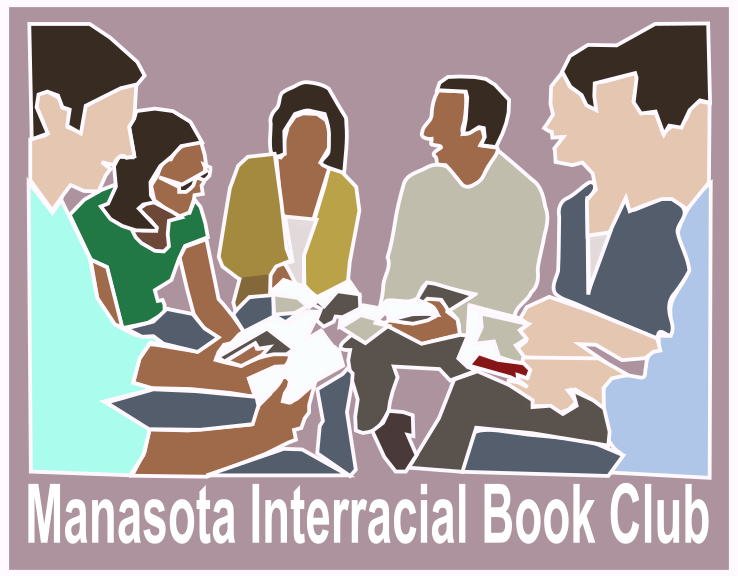
Manasota Interracial Book Club
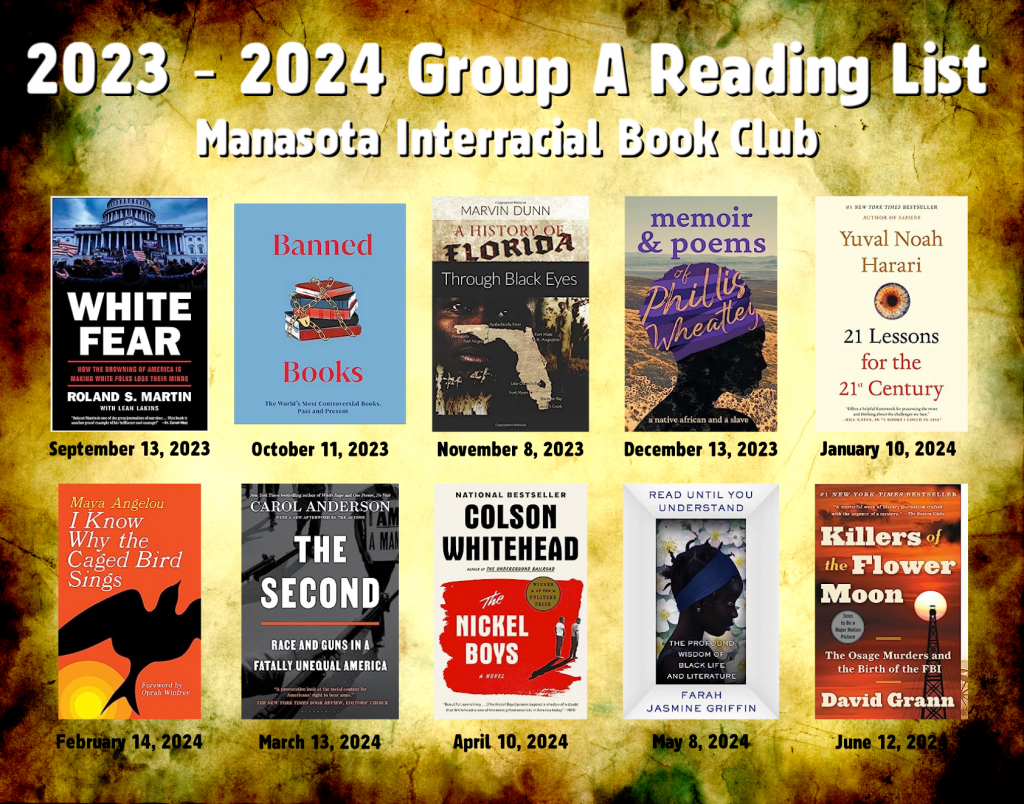
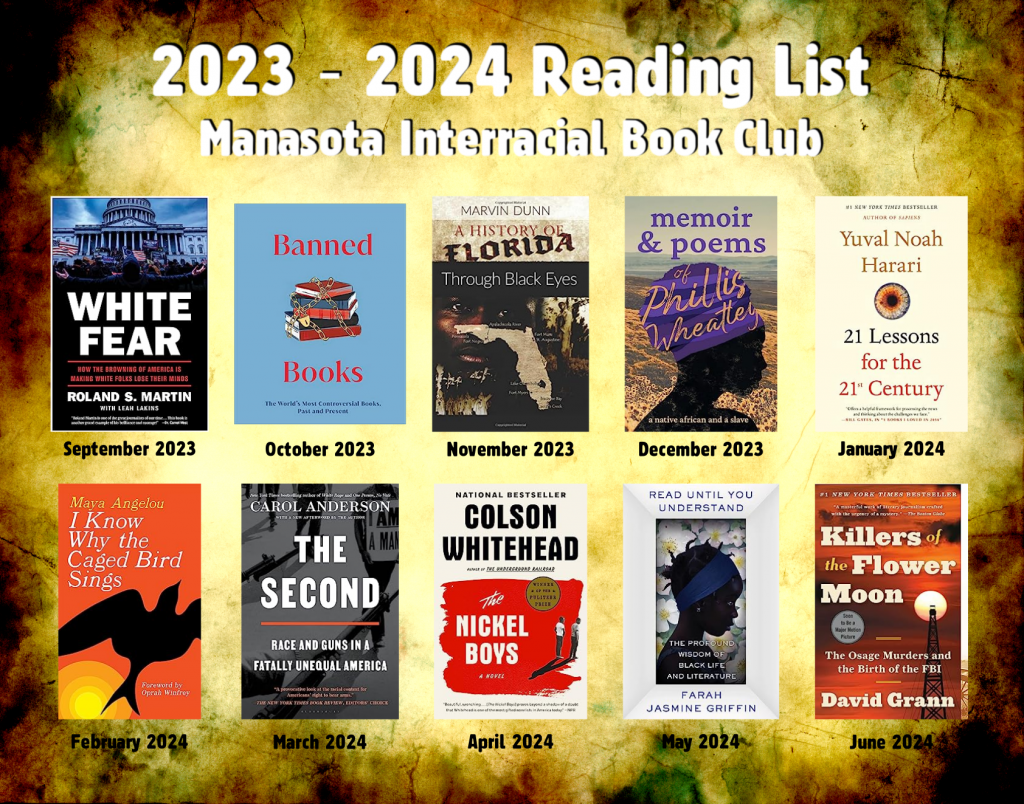
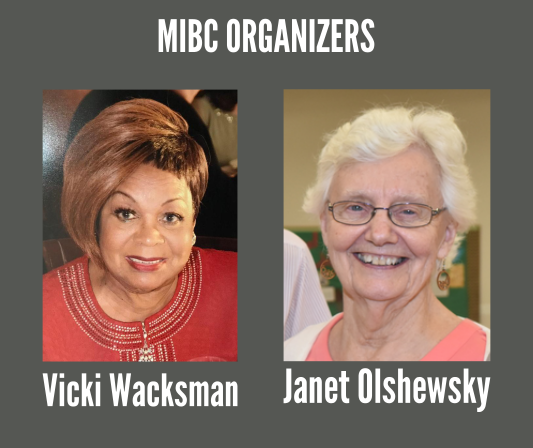
American Greatness by Donovan Brown
To be Black in America is to live
with the uncertainty of death. It is an inviolable
truth that is known to every black child before
they are born.
You may die
before your birth.
You may die within
your house. You may die outside your house.
You may die drinking water.
You may die
from the food you eat.
You may die walking, jogging, or running.
You may die playing.
You may die at worship.
You may die at work, because of work,
due to work.
You may die in a cage.
You may die voiceless,
unseen and alone.
And your death, my death, and the death of those whom come before and after us will be another
ritualistic killing placed at the altar of American Greatness.
This uncertainty of death is as real to a Black Person in America as the very air that gives us life to
continue on.
And it is that, continuing that makes us so despised, so
hated but We persist, we create art and song and story.
Our culture is one of life and joy, an indomitable spirit that will never succumb.
So we are hated more because those who wish to make us chattel and have failed incessantly can do
nothing more than look upon us with awe. What rage you must feel as the only thing you cannot tame,
beguile, or destroy, is the very thing that continues to influence your very actions. As your children fawn
to become the very thing you wish to rid the world of.
How your culture becomes less reminiscent of what you so painstakingly killed and deceived for, how
your God
shrinks with every passing generation.
I would pity you but I may die doing so.
Best Current Books on Race and Other Resources
Alexander, Michelle: The New Jim Crow
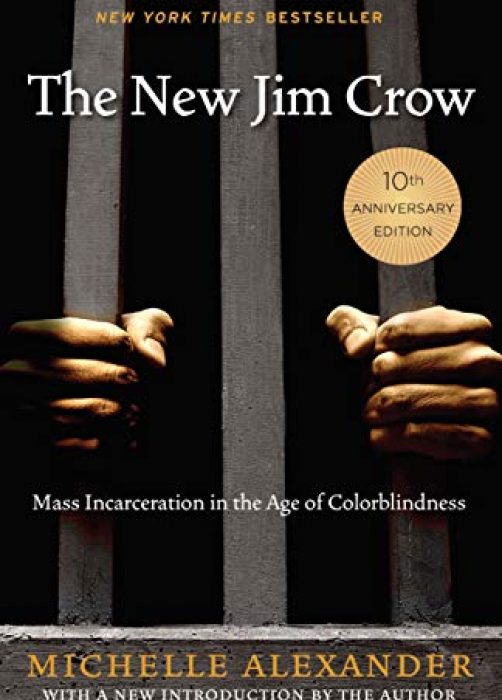
Once in a great while a book comes along that changes the way we see the world and helps to fuel a nationwide social movement. The New Jim Crow is such a book. Praised by Harvard Law professor Lani Guinier as “brave and bold,” this book directly challenges the notion that the election of Barack Obama signals a new era of colorblindness. With dazzling candor, legal scholar Michelle Alexander argues that “we have not ended racial caste in America; we have merely redesigned it.” By targeting black men through the War on Drugs and decimating communities of color, the U.S. criminal justice system functions as a contemporary system of racial control—relegating millions to a permanent second-class status—even as it formally adheres to the principle of colorblindness. In the words of Benjamin Todd Jealous, president and CEO of the NAACP, this book is a “call to action.”
Allen, Theodore: The Invention of the White Race
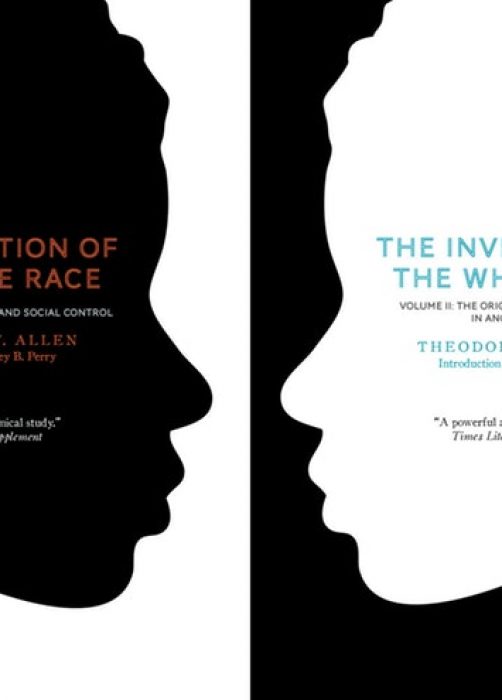
The Invention of the White Race is a groundbreaking analysis of the birth of racism in America. When the first Africans arrived in Virginia in 1619, there were no “white” people, nor, according to colonial records, would there be for another sixty years. In his seminal two-volume work, Theodore W. Allen details the creation of the “white race” by the ruling class as a method of social control in response to labor unrest precipitated by Bacon’s Rebellion. By distinguishing European Americans from African Americans within the laboring class, White privileges enforced the myth of the White race through the years and has been central to maintaining ruling-class domination over the entire working class.
Anderson, Carol: White Rage: The Unspoken Truth of Our Racial Divide
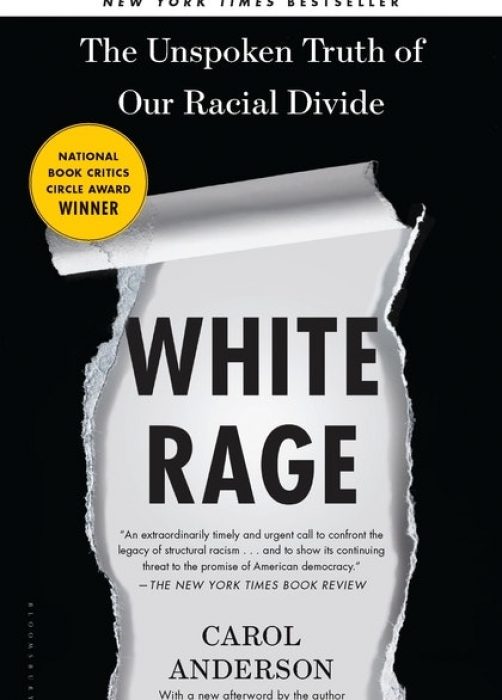
As Ferguson, Missouri, erupted in August 2014, and media commentators across the ideological spectrum referred to the angry response of African Americans as “black rage,” historian Carol Anderson wrote a remarkable op-ed in The Washington Post suggesting that this was, instead, “white rage at work. With so much attention on the flames,” she argued, “everyone had ignored the kindling.” Carefully linking these and other historical flash points when social progress for African Americans was countered by deliberate and cleverly crafted opposition, Anderson pulls back the veil that has long covered actions made in the name of protecting democracy, fiscal responsibility, or protection against fraud, rendering visible the long lineage of white rage. Compelling and dramatic in the unimpeachable history it relates, White Rage will add an important new dimension to the national conversation about race in America.
Baldwin, James: The Fire Next Time
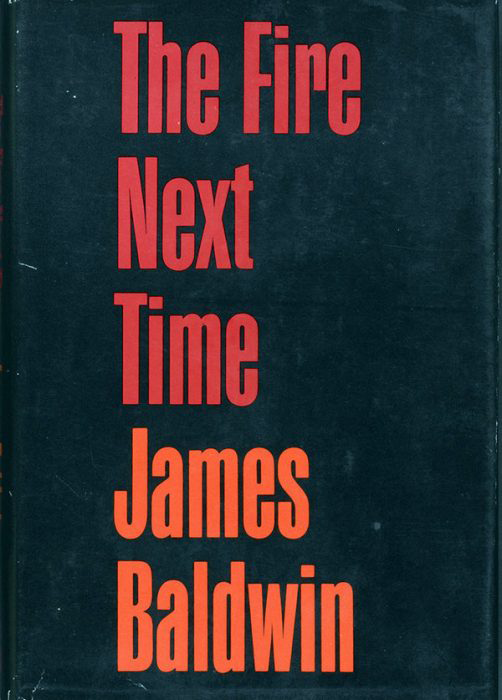
A national bestseller when it first appeared in 1963, The Fire Next Time galvanized the nation and gave passionate voice to the emerging civil rights movement. At once a powerful evocation of James Baldwin’s early life in Harlem and a disturbing examination of the consequences of racial injustice, the book is an intensely personal and provocative document. It consists of two “letters,” written on the occasion of the centennial of the Emancipation Proclamation, that exhort Americans, both black and white, to attack the terrible legacy of racism. Described by The New York Times Book Review as “sermon, ultimatum, confession, deposition, testament, and chronicle…all presented in searing, brilliant prose,” The Fire Next Time stands as a classic of our literature.
Barndt, Joseph: Understanding and Dismantling Racism: The Twenty-first Century Challenge to White America
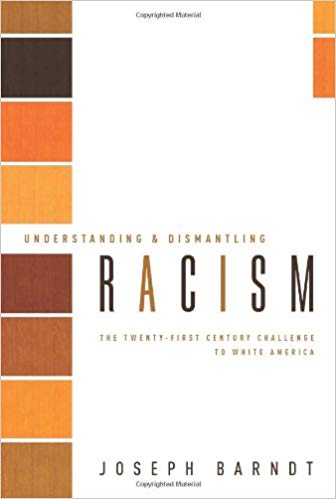
More than 15 years have passed since Joe Barndt wrote his influential and widely acclaimed Dismantling Racism (1991, Augsburg Books). He has now written a replacement volume – powerful, personal, and practical – that reframes the whole issue for the new context of the twenty-first century. With great clarity Barndt traces the history of racism, especially in white America, revealing its various personal, institutional, and cultural forms. Without demonizing anyone or any race, he offers specific, positive ways in which people in all walks, including churches, can work to bring racism to an end. He includes the newest data on continuing conditions of People of Color, including their progress relative to the minimal standards of equality in housing, income and wealth, education, and health. He discusses current dimensions of race as they appear in controversies over 9/11, New Orleans, and undocumented workers. Includes analytical charts, definitions, bibliography, and exercises for readers.
Bayoumi, Moustafa: How Does it Feel to be a Problem: Being Young and Arab in America
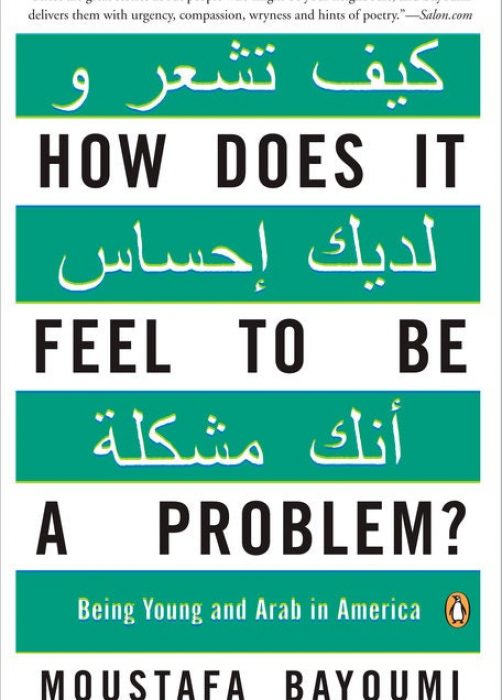
Just over a century ago, W.E.B. Du Bois posed a probing question in his classic The Souls of Black Folk: How does it feel to be a problem? Now, Moustafa Bayoumi asks the same about America’s new “problem”-Arab- and Muslim-Americans. Bayoumi takes readers into the lives of seven twenty-somethings living in Brooklyn, home to the largest Arab-American population in the United States. He moves beyond stereotypes and clichés to reveal their often unseen struggles, from being subjected to government surveillance to the indignities of workplace discrimination. Through it all, these young men and women persevere through triumphs and setbacks as they help weave the tapestry of a new society that is, at its heart, purely American.
Bernard, Emily: Black is the Body: Stories from My Grandmother’s Time, My Mother’s Time, and Mine
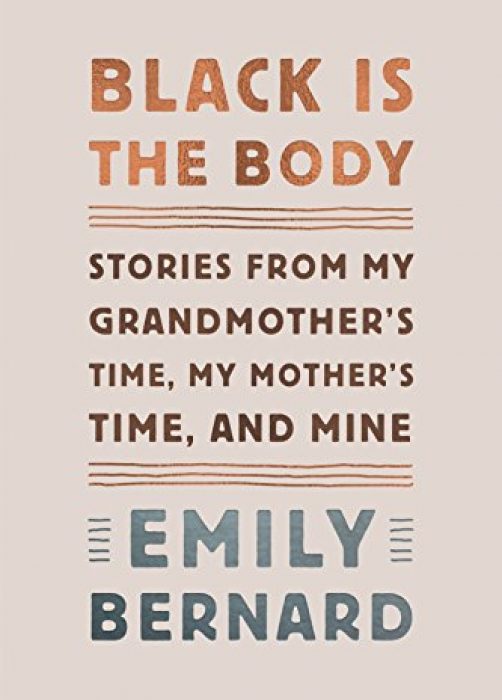
An extraordinary, exquisitely written memoir (of sorts) that looks at race–in a fearless, penetrating, honest, true way–in twelve telltale, connected, deeply personal essays that explore, up-close, the complexities and paradoxes, the haunting memories and ambushing realities of growing up black in the South with a family name inherited from a white man, of getting a PhD from Yale, of marrying a white man from the North, of adopting two babies from Ethiopia, of teaching at a white college and living in America’s New England today. From the acclaimed editor of Remember Me to Harlem: The Letters of Langston Hughes and Carl Van Vechten
Blackmon, Douglas A.: Slavery by Another Name: The Re-Enslavement of Black Americans from the Civil War to World War II
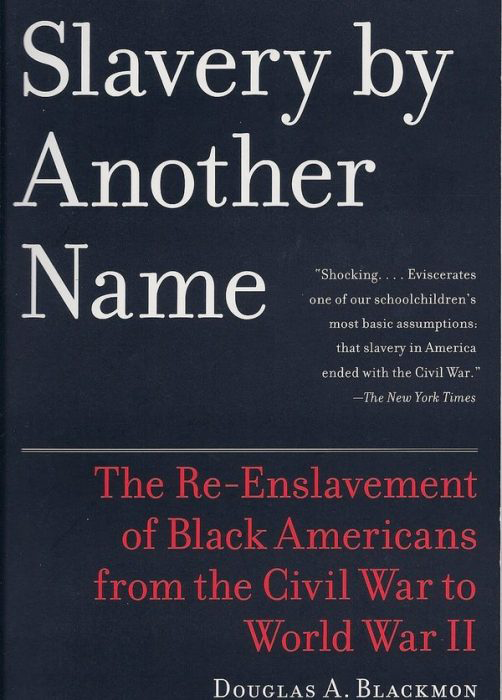
Using a vast record of original documents and personal narratives, Douglas A. Blackmon unearths the lost stories of slaves and their descendants who journeyed into freedom after the Emancipation Proclamation and then back into the shadow of involuntary servitude shortly thereafter. By turns moving, sobering, and shocking, this unprecedented account reveals the stories of those who fought unsuccessfully against the re-emergence of human labor trafficking, the companies that profited most from neoslavery, and the insidious legacy of racism that reverberates today
Blum, Edward: Reforging the White Republic: Race, Religion and American Nationalism
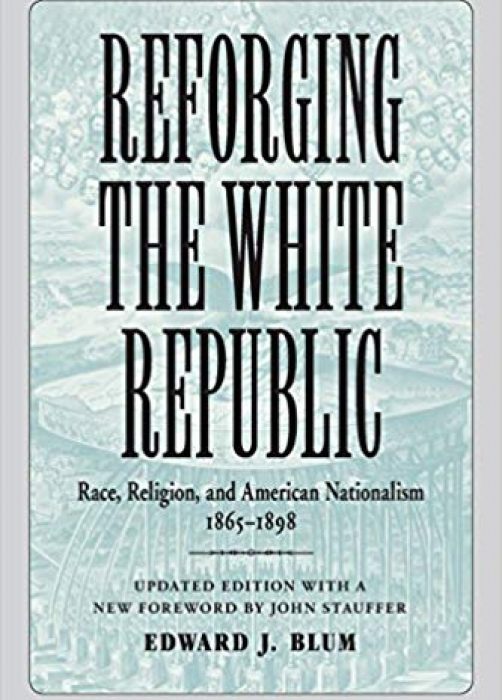
During Reconstruction, former abolitionists in the North had a golden opportunity to pursue true racial justice and permanent reform in America. But after the sacrifice made by thousands of Union soldiers to arrive at this juncture, the moment soon slipped away, leaving many whites throughout the North and South more racist than before. Edward J. Blum takes a fresh look at the reasons for this failure in Reforging the White Republic, focusing on the vital role that religion played in reunifying northern and southern whites into a racially segregated society. A blend of history and social science, Reforging the White Republic offers a surprising perspective on the forces of religion as well as nationalism and imperialism at a critical point in American history.
Bonilla-Silva, Eduardo: Racism Without Racists: Color-blind Racism and the Persistence of Racial Inequality in America
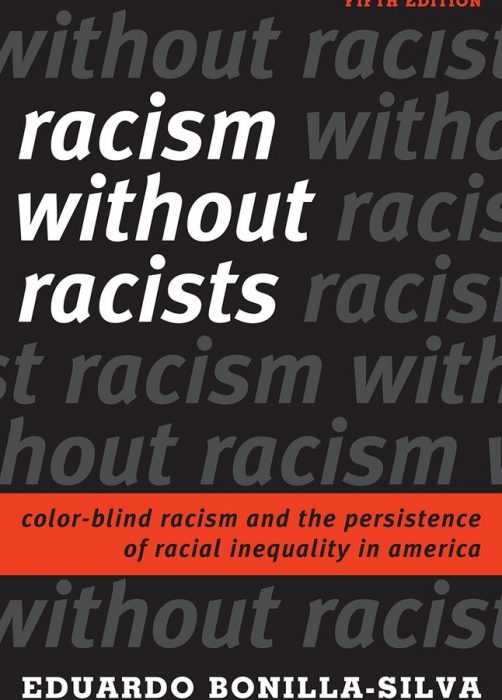
Eduardo Bonilla-Silva’s acclaimed Racism without Racists documents how, beneath our contemporary conversation about race, there lies a full-blown arsenal of arguments, phrases, and stories that whites use to account for—and ultimately justify—racial inequalities. The fifth edition of this provocative book makes clear that color blind racism is as insidious now as ever. It features new material on our current racial climate, including the Black Lives Matter movement; a significantly revised chapter that examines the Obama presidency, the 2016 election, and Trump’s presidency; and a new chapter addressing what readers can do to confront racism—both personally and on a larger structural level.
Brown, Austin Channing: I’m Still Here. Black Dignity in a World Made for Whiteness
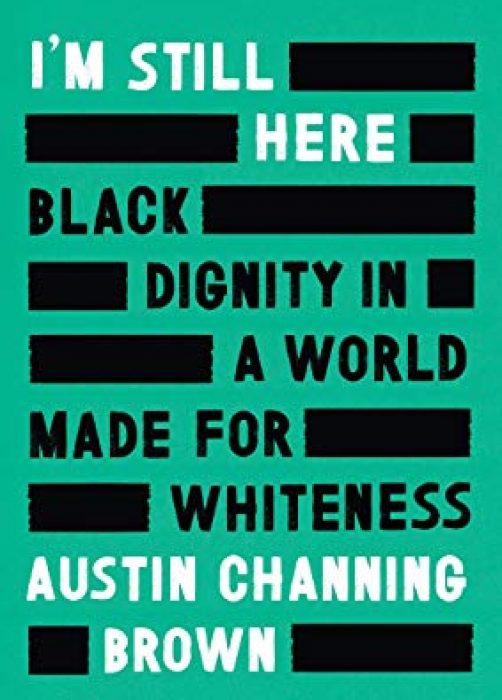
Austin Channing Brown’s first encounter with a racialized America came at age 7, when she discovered her parents named her Austin to deceive future employers into thinking she was a white man. Growing up in majority-white schools, organizations, and churches, Austin writes, “I had to learn what it means to love blackness,” a journey that led to a lifetime spent navigating America’s racial divide as a writer, speaker and expert who helps organizations practice genuine inclusion.
In a time when nearly all institutions (schools, churches, universities, businesses) claim to value “diversity” in their mission statements, I’m Still Here is a powerful account of how and why our actions so often fall short of our words. Austin writes in breathtaking detail about her journey to self-worth and the pitfalls that kill our attempts at racial justice, in stories that bear witness to the complexity of America’s social fabric–from Black Cleveland neighborhoods to private schools in the middle-class suburbs, from prison walls to the boardrooms at majority-white organizations.
For readers who have engaged with America’s legacy on race through the writing of Ta-Nehisi Coates and Michael Eric Dyson, I’m Still Here is an illuminating look at how white, middle-class, Evangelicalism has participated in an era of rising racial hostility, inviting the reader to confront apathy, recognize God’s ongoing work in the world, and discover how blackness–if we let it–can save us all.
Butler, Paul: Chokehold: Policing Black Men
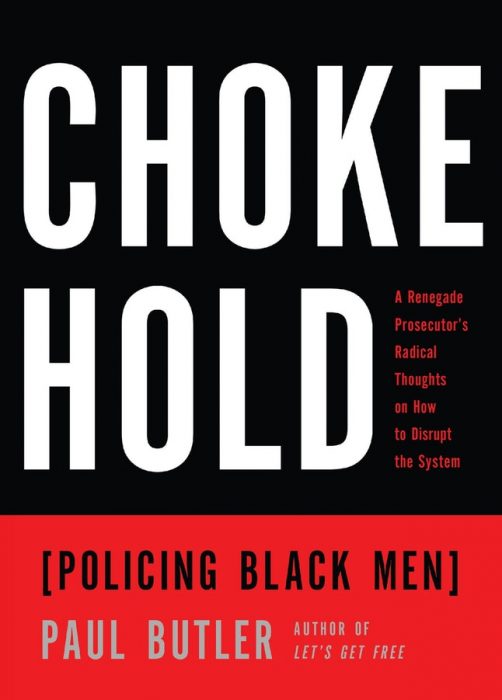
Cops, politicians, and ordinary people are afraid of black men. The result is the Chokehold: laws and practices that treat every African American man like a thug. In this explosive new book, an African American former federal prosecutor shows that the system is working exactly the way it’s supposed to. Black men are always under watch, and police violence is widespread—all with the support of judges and politicians.
In his no-holds-barred style, Butler, whose scholarship has been featured on 60 Minutes, uses new data to demonstrate that white men commit the majority of violent crime in the United States. For example, a white woman is ten times more likely to be raped by a white male acquaintance than be the victim of a violent crime perpetrated by a black man. Butler also frankly discusses the problem of black on black violence and how to keep communities safer—without relying as much on police.
Chokehold powerfully demonstrates why current efforts to reform law enforcement will not create lasting change. Butler’s controversial recommendations about how to crash the system, and when it’s better for a black man to plead guilty—even if he’s innocent—are sure to be game-changers in the national debate about policing, criminal justice, and race relations.
Carter, J Kameron: Race: A Theological Account
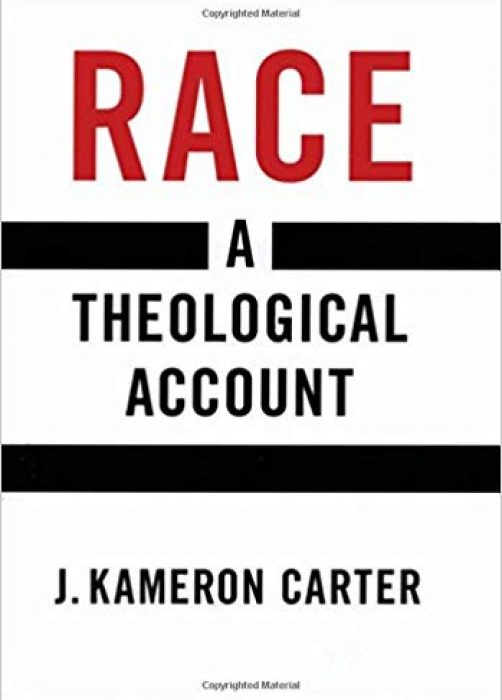
Cops, politicians, and ordinary people are afraid of black men. The result is the Chokehold: laws and practices that treat every African American man like a thug. In this explosive new book, an African American former federal prosecutor shows that the system is working exactly the way it’s supposed to. Black men are always under watch, and police violence is widespread—all with the support of judges and politicians.
In his no-holds-barred style, Butler, whose scholarship has been featured on 60 Minutes, uses new data to demonstrate that white men commit the majority of violent crime in the United States. For example, a white woman is ten times more likely to be raped by a white male acquaintance than be the victim of a violent crime perpetrated by a black man. Butler also frankly discusses the problem of black on black violence and how to keep communities safer—without relying as much on police.
Chokehold powerfully demonstrates why current efforts to reform law enforcement will not create lasting change. Butler’s controversial recommendations about how to crash the system, and when it’s better for a black man to plead guilty—even if he’s innocent—are sure to be game-changers in the national debate about policing, criminal justice, and race relations.
Coates, Ta Nahesi: Between the World and Me
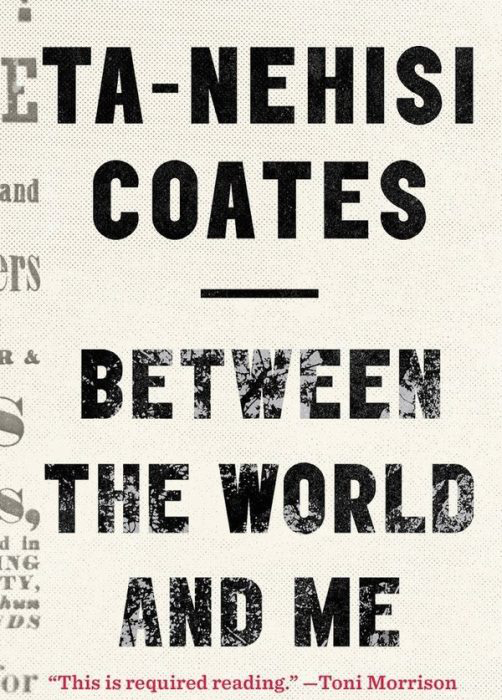
In a profound work that pivots from the biggest questions about American history and ideals to the most intimate concerns of a father for his son, Ta-Nehisi Coates offers a powerful new framework for understanding our nation’s history and current crisis. Americans have built an empire on the idea of “race,” a falsehood that damages us all but falls most heavily on the bodies of black women and men—bodies exploited through slavery and segregation, and, today, threatened, locked up, and murdered out of all proportion. What is it like to inhabit a black body and find a way to live within it? And how can we all honestly reckon with this fraught history and free ourselves from its burden?
Between the World and Me is Ta-Nehisi Coates’s attempt to answer these questions in a letter to his adolescent son. Coates shares with his son—and readers—the story of his awakening to the truth about his place in the world through a series of revelatory experiences, from Howard University to Civil War battlefields, from the South Side of Chicago to Paris, from his childhood home to the living rooms of mothers whose children’s lives were taken as American plunder. Beautifully woven from personal narrative, reimagined history, and fresh, emotionally charged reportage, Between the World and Me clearly illuminates the past, bracingly confronts our present, and offers a transcendent vision for a way forward.
Cone, James H.: The Cross and the Lynching Tree
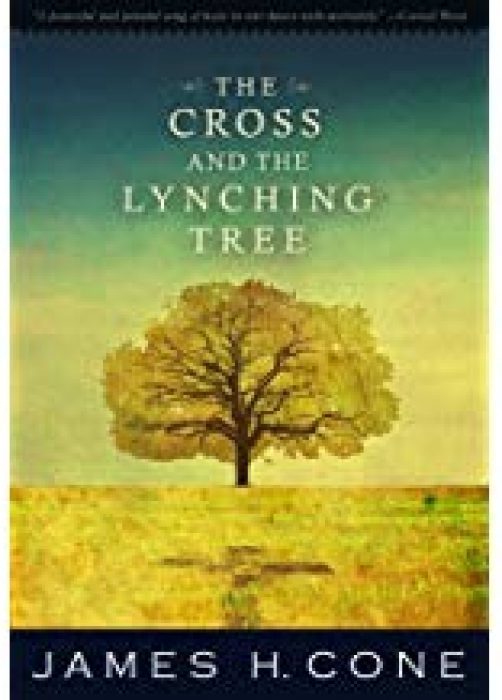
Based on impressive research, Cone argues that the lynching tree is a viable reality/symbol for reflection on the cross of Christ. According to Cone, understandings of the cross and lynching tree can mutually inform one another and explain how events of trauma and injustice can still inspire hope for the African American community.
Cone, James: God of the Oppressed
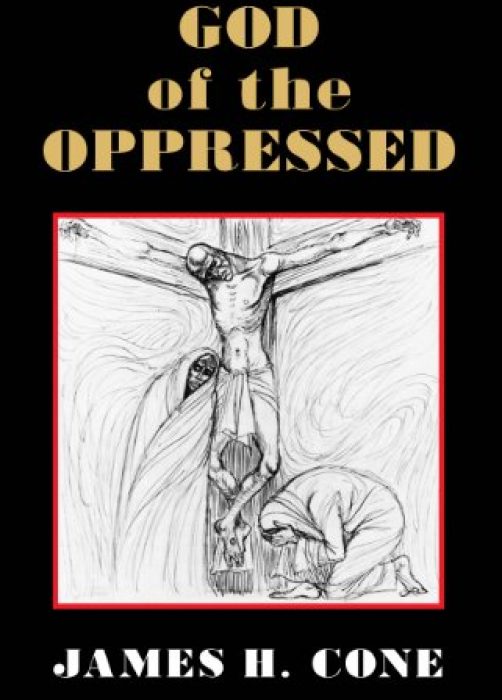
In his reflections on God, Jesus, suffering, and liberation, James H. Cone relates the gospel message to the experience of the black community. But a wider theme of the book is the role that social and historical context plays in framing the questions we address to God as well as the mode of the answers provided.
Diangelo, Robin: White Fragility
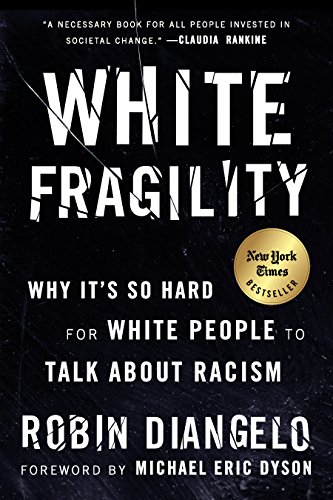
In this “vital, necessary, and beautiful book” (Michael Eric Dyson), antiracist educator Robin DiAngelo deftly illuminates the phenomenon of white fragility and “allows us to understand racism as a practice not restricted to ‘bad people’ (Claudia Rankine). Referring to the defensive moves that white people make when challenged racially, white fragility is characterized by emotions such as anger, fear, and guilt, and by behaviors including argumentation and silence. These behaviors, in turn, function to reinstate white racial equilibrium and prevent any meaningful cross-racial dialogue. In this in-depth exploration, DiAngelo examines how white fragility develops, how it protects racial inequality, and what we can do to engage more constructively.
Dyson, Michael Eric: Tears We Cannot Stop: A Sermon to White America
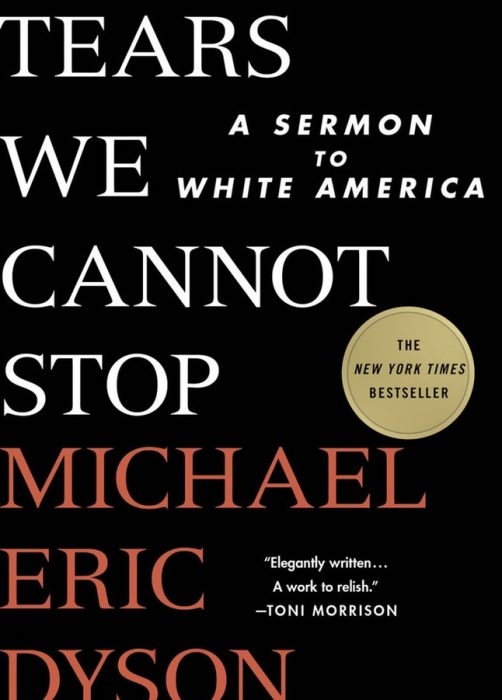
Short, emotional, literary, powerful―Tears We Cannot Stop is the book that all Americans who care about the current and long-burning crisis in race relations will want to read. As the country grapples with racist division at a level not seen since the 1960s, one man’s voice soars above the rest with conviction and compassion. In his 2016 New York Times op-ed piece “Death in Black and White,” Michael Eric Dyson moved a nation. Now he continues to speak out in Tears We Cannot Stop―a provocative and deeply personal call for change. Dyson argues that if we are to make real racial progress we must face difficult truths, including being honest about how black grievance has been ignored, dismissed, or discounted. “The time is at hand for reckoning with the past, recognizing the truth of the present, and moving together to redeem the nation for our future. If we don’t act now, if you don’t address race immediately, there very well may be no future.”
Eberhardt, Jennifer: Biased
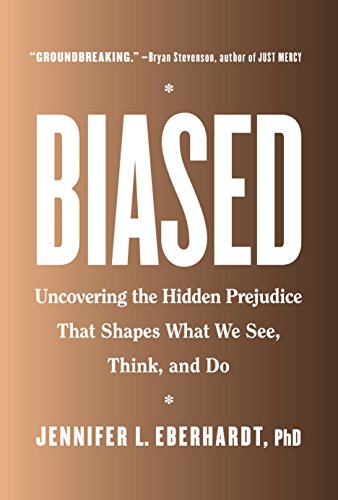
You don’t have to be racist to be biased. Unconscious bias can be at work without our realizing it, and even when we genuinely wish to treat all people equally, ingrained stereotypes can infect our visual perception, attention, memory, and behavior. This has an impact on education, employment, housing, and criminal justice. In Biased, with a perspective that is at once scientific, investigative, and informed by personal experience, Jennifer Eberhardt offers us insights into the dilemma and a path forward. Eberhardt works extensively as a consultant to law enforcement and as a psychologist at the forefront of this new field. Her research takes place in courtrooms and boardrooms, in prisons, on the street, and in classrooms and coffee shops. She shows us the subtle–and sometimes dramatic–daily repercussions of implicit bias in how teachers grade students, or managers deal with customers. It has an enormous impact on the conduct of criminal justice, from the rapid decisions police officers have to make to sentencing practices in court. Eberhardt’s work and her book are both influenced by her own life, and the personal stories she shares emphasize the need for change. She has helped companies that include Airbnb and Nextdoor address bias in their business practices and has led anti-bias initiatives for police departments across the country. Here, she offers practical suggestions for reform and new practices that are useful for organizations as well as individuals. Unblinking about the tragic consequences of prejudice, Eberhardt addresses how racial bias is not the fault of nor restricted to a few “bad apples” but is present at all levels of society in media, education, and business. The good news is that we are not hopelessly doomed by our innate prejudices. In Biased, Eberhardt reminds us that racial bias is a human problem–one all people can play a role in solving.
Edim, Glory: Well-Read Black Girl: Finding Our Stories, Discovering Ourselves
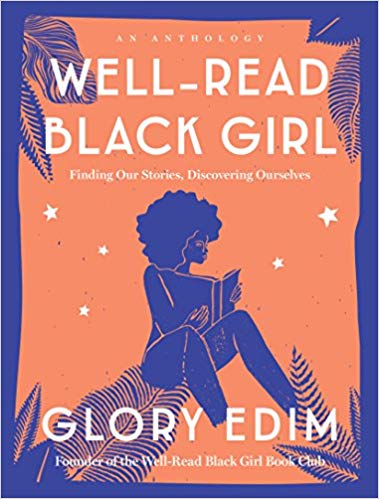
Remember that moment when you first encountered a character who seemed to be written just for you? That feeling of belonging remains with readers the rest of their lives—but not everyone regularly sees themselves in the pages of a book. In this timely anthology, Glory Edim brings together original essays by some of our best black women writers to shine a light on how important it is that we all—regardless of gender, race, religion, or ability—have the opportunity to find ourselves in literature. Whether it’s learning about the complexities of femalehood from Zora Neale Hurston and Toni Morrison, finding a new type of love in The Color Purple, or using mythology to craft an alternative black future, the subjects of each essay remind us why we turn to books in times of both struggle and relaxation. As she has done with her book club–turned–online community Well-Read Black Girl, in this anthology Glory Edim has created a space in which black women’s writing and knowledge and life experiences are lifted up, to be shared with all readers who value the power of a story to help us understand the world and ourselves.
Emerson, Michael O.: Divided by Faith
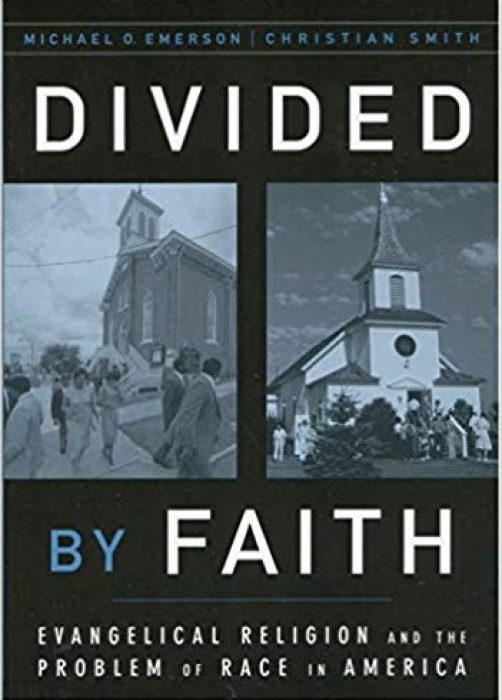
Remember that moment when you first encountered a character who seemed to be written just for you? That feeling of belonging remains with readers the rest of their lives—but not everyone regularly sees themselves in the pages of a book. In this timely anthology, Glory Edim brings together original essays by some of our best black women writers to shine a light on how important it is that we all—regardless of gender, race, religion, or ability—have the opportunity to find ourselves in literature. Whether it’s learning about the complexities of femalehood from Zora Neale Hurston and Toni Morrison, finding a new type of love in The Color Purple, or using mythology to craft an alternative black future, the subjects of each essay remind us why we turn to books in times of both struggle and relaxation. As she has done with her book club–turned–online community Well-Read Black Girl, in this anthology Glory Edim has created a space in which black women’s writing and knowledge and life experiences are lifted up, to be shared with all readers who value the power of a story to help us understand the world and ourselves.
Forman, James: Locking Up Our Own: Crime and Punishment in Black America
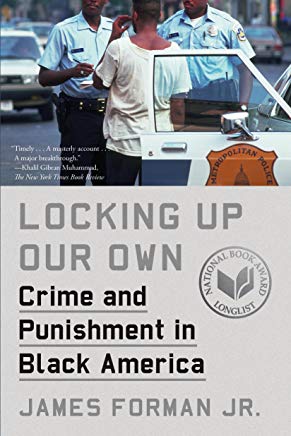
In recent years, America’s criminal justice system has become the subject of an increasingly urgent debate. Critics have assailed the rise of mass incarceration, emphasizing its disproportionate impact on people of color. As James Forman, Jr., points out, however, the war on crime that began in the 1970s was supported by many African American leaders in the nation’s urban centers. In Locking Up Our Own, he seeks to understand why. Forman shows us that the first substantial cohort of black mayors, judges, and police chiefs took office amid a surge in crime and drug addiction. Many prominent black officials, including Washington, D.C. mayor Marion Barry and federal prosecutor Eric Holder, feared that the gains of the civil rights movement were being undermined by lawlessness—and thus embraced tough-on-crime measures, including longer sentences and aggressive police tactics. In the face of skyrocketing murder rates and the proliferation of open-air drug markets, they believed they had no choice. But the policies they adopted would have devastating consequences for residents of poor black neighborhoods. A former D.C. public defender, Forman tells riveting stories of politicians, community activists, police officers, defendants, and crime victims. He writes with compassion about individuals trapped in terrible dilemmas—from the men and women he represented in court to officials struggling to respond to a public safety emergency. Locking Up Our Own enriches our understanding of why our society became so punitive and offers important lessons to anyone concerned about the future of race and the criminal justice system in this country.
Gates, Henry Louis Jr.: Stony the Road
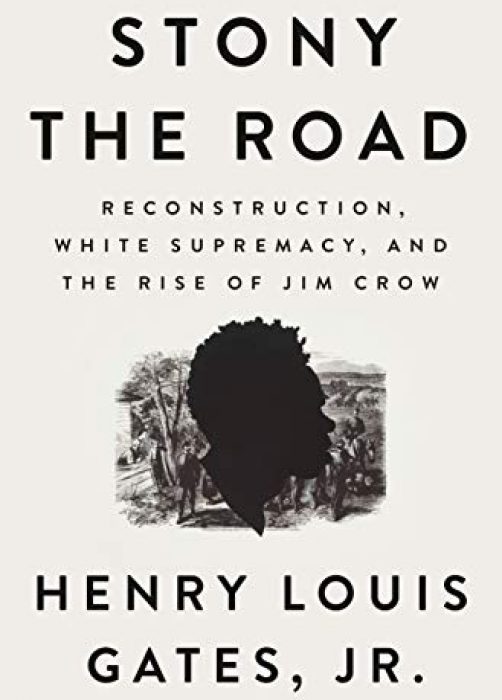
The abolition of slavery in the aftermath of the Civil War is a familiar story, as is the civil rights revolution that transformed the nation after World War II. But the century in between remains a mystery: if emancipation sparked “a new birth of freedom” in Lincoln’s America, why was it necessary to march in Martin Luther King, Jr.’s America? In this new book, Henry Louis Gates, Jr., one of our leading chroniclers of the African-American experience, seeks to answer that question in a history that moves from the Reconstruction Era to the “nadir” of the African-American experience under Jim Crow, through to World War I and the Harlem Renaissance. Through his close reading of the visual culture of this tragic era, Gates reveals the many faces of Jim Crow and how, together, they reinforced a stark color line between white and black Americans. Bringing a lifetime of wisdom to bear as a scholar, filmmaker, and public intellectual, Gates uncovers the roots of structural racism in our own time, while showing how African Americans after slavery combatted it by articulating a vision of a “New Negro” to force the nation to recognize their humanity and unique contributions to America as it hurtled toward the modern age. The story Gates tells begins with great hope, with the Emancipation Proclamation, Union victory, and the liberation of nearly 4 million enslaved African-Americans. Until 1877, the federal government, goaded by the activism of Frederick Douglass and many others, tried at various turns to sustain their new rights. But the terror unleashed by white paramilitary groups in the former Confederacy, combined with deteriorating economic conditions and a loss of Northern will, restored “home rule” to the South. The retreat from Reconstruction was followed by one of the most violent periods in our history, with thousands of black people murdered or lynched and many more afflicted by the degrading impositions of Jim Crow segregation. An essential tour through one of America’s fundamental historical tragedies, Stony the Road is also a story of heroic resistance, as figures such as W. E. B. Du Bois and Ida B. Wells fought to create a counter-narrative, and culture, inside the lion’s mouth. As sobering as this tale is, it also has within it the inspiration that comes with encountering the hopes our ancestors advanced against the longest odds.
Haley, Alex and Malcolm X: The Autobiography of Malcolm X
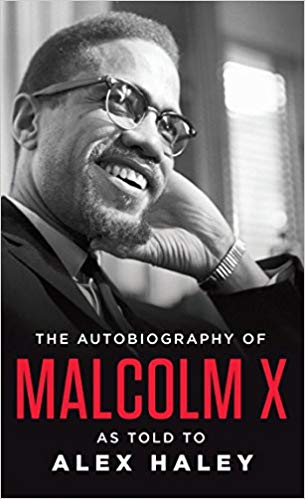
In the searing pages of this classic autobiography, originally published in 1964, Malcolm X, the Muslim leader, firebrand, and anti-integrationist, tells the extraordinary story of his life and the growth of the Black Muslim movement. His fascinating perspective on the lies and limitations of the American Dream, and the inherent racism in a society that denies its nonwhite citizens the opportunity to dream, gives extraordinary insight into the most urgent issues of our own time. The Autobiography of Malcolm X stands as the definitive statement of a movement and a man whose work was never completed but whose message is timeless. It is essential reading for anyone who wants to understand America.
Hartman, Saidiya: Lose Your Mother: A Journey Along the Atlantic Slave Route
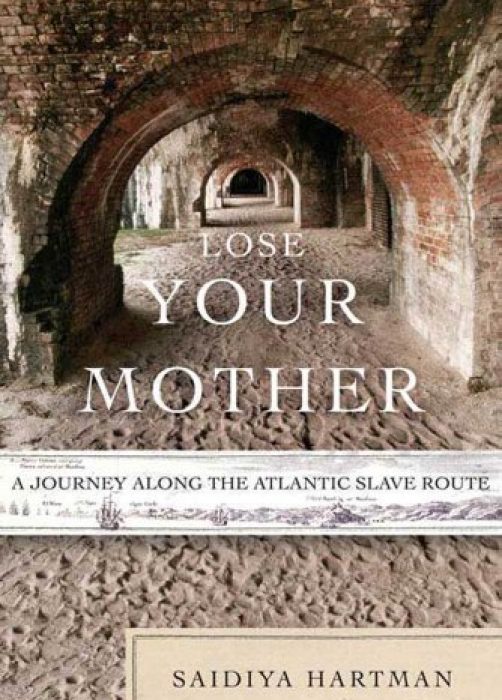
In Lose Your Mother, Saidiya Hartman traces the history of the Atlantic slave trade by recounting a journey she took along a slave route in Ghana. Following the trail of captives from the hinterland to the Atlantic coast, she reckons with the blank slate of her own genealogy and vividly dramatizes the effects of slavery on three centuries of African and African American history. The slave, Hartman observes, is a stranger―torn from family, home, and country. To lose your mother is to be severed from your kin, to forget your past, and to inhabit the world as an outsider. There are no known survivors of Hartman’s lineage, no relatives in Ghana whom she came hoping to find. She is a stranger in search of strangers, and this fact leads her into intimate engagements with the people she encounters along the way and with figures from the past whose lives were shattered and transformed by the slave trade. Written in prose that is fresh, insightful, and deeply affecting, Lose Your Mother is a “landmark text” (Robin D. G. Kelley, author of Freedom Dreams).
Hays, J. Daniel: From Every People and Nation: A Biblical Theology of Race
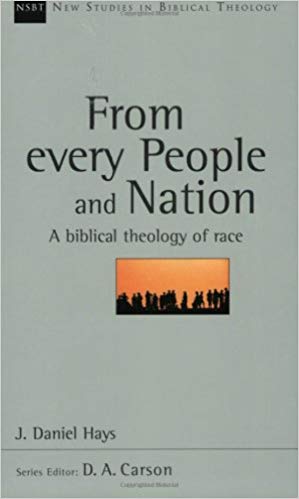
“After this I looked and there before me was a great multitude that no one could count, from every nation, tribe, people and language . . .” (Revelation 7:9). The visions in the book of Revelation give a glimpse of the people of God at the consummation of history―a multiethnic congregation gathered together in worship around God’s throne. Its racial diversity is expressed in a fourfold formula that first appears in Genesis 10. The theme of race runs throughout Scripture, constantly pointing to the global and multiethnic dimensions inherent in the overarching plan of God. In response to the neglect of this theme in much evangelical biblical scholarship, J. Daniel Hays offers this thorough exegetical work in the New Studies in Biblical Theology series. As well as focusing on texts which have a general bearing on race, Hays demonstrates that black Africans from Cush (Ethiopia) play an important role in both Old and New Testament history. This careful, nuanced analysis provides a clear theological foundation for life in contemporary multiracial cultures and challenges churches to pursue racial unity in Christ. Addressing key issues in biblical theology, the works comprising New Studies in Biblical Theology are creative attempts to help Christians better understand their Bibles. The NSBT series is edited by D. A. Carson, aiming to simultaneously instruct and to edify, to interact with current scholarship and to point the way ahead.
Hill, Daniel: White Awake
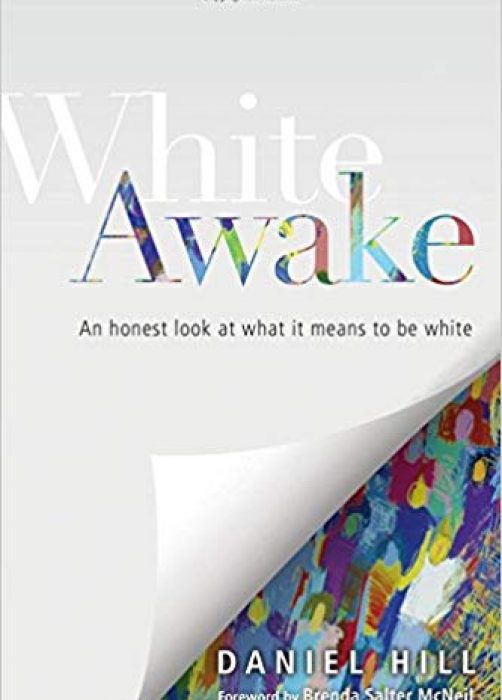
Daniel Hill will never forget the day he heard these words: “Daniel, you may be white, but don’t let that lull you into thinking you have no culture. White culture is very real. In fact, when white culture comes in contact with other cultures, it almost always wins. So it would be a really good idea for you to learn about your culture.” Confused and unsettled by this encounter, Hill began a journey of understanding his own white identity. Today he is an active participant in addressing and confronting racial and systemic injustices. And in this compelling and timely book, he shows you the seven stages to expect on your own path to cultural awakening. It’s crucial to understand both personal and social realities in the areas of race, culture, and identity. This book will give you a new perspective on being white and also empower you to be an agent of reconciliation in our increasingly diverse and divided world.
Hooks, Bell: Ain’t I a Woman: Black Women and Feminism
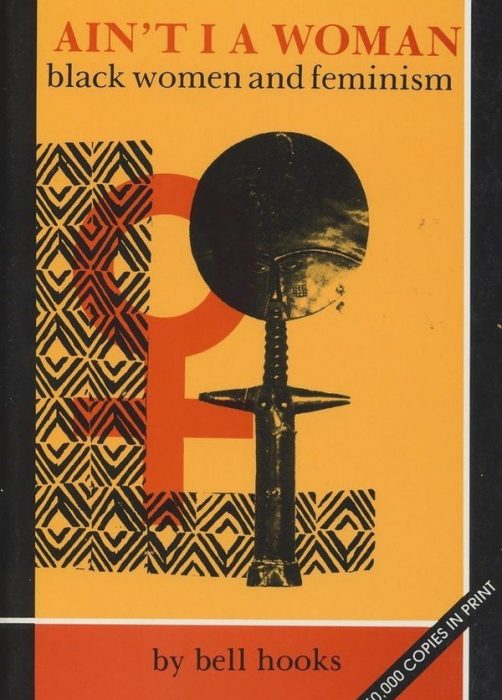
A classic work of feminist scholarship, Ain’t I a Woman has become a must-read for all those interested in the nature of black womanhood. Examining the impact of sexism on black women during slavery, the devaluation of black womanhood, black male sexism, racism among feminists, and the black woman’s involvement with feminism, hooks attempts to move us beyond racist and sexist assumptions. The result is nothing short of groundbreaking, giving this book a critical place on every feminist scholar’s bookshelf.
Hughes, Langston: The Negro Artist and the Racial Mountain (PDF)
Hurston, Zora Neale: Barracoon: The Last Black Cargo
In 1927, Zora Neale Hurston went to Plateau, Alabama, just outside Mobile, to interview eighty-six-year-old Cudjo Lewis. Of the millions of men, women, and children transported from Africa to America as slaves, Cudjo was then the only person alive to tell the story of this integral part of the nation’s history. Hurston was there to record Cudjo’s firsthand account of the raid that led to his capture and bondage fifty years after the Atlantic slave trade was outlawed in the United States. In 1931, Hurston returned to Plateau, the African-centric community three miles from Mobile founded by Cudjo and other former slaves from his ship. Spending more than three months there, she talked in depth with Cudjo about the details of his life. During those weeks, the young writer and the elderly formerly enslaved man ate peaches and watermelon that grew in the backyard and talked about Cudjo’s past—memories from his childhood in Africa, the horrors of being captured and held in a barracoon for selection by American slavers, the harrowing experience of the Middle Passage packed with more than 100 other souls aboard the Clotilda, and the years he spent in slavery until the end of the Civil War. Based on those interviews, featuring Cudjo’s unique vernacular, and written from Hurston’s perspective with the compassion and singular style that have made her one of the preeminent American authors of the twentieth-century, Barracoon masterfully illustrates the tragedy of slavery and of one life forever defined by it. Offering insight into the pernicious legacy that continues to haunt us all, black and white, this poignant and powerful work is an invaluable contribution to our shared history and culture.
Hurston, Zora Neale: Their Eyes were Watching God
When Janie Starks returns to her rural Florida home, her small black community is overwhelmed with curiosity about her relationship with a younger man.
Joseph, Peniel E.: Waiting ‘Til the Midnight Hour: A Narrative History of Black Power in America
With the rallying cry of “Black Power!” in 1966, a group of black activists, including Stokely Carmichael and Huey P. Newton, turned their backs on Martin Luther King’s pacifism and, building on Malcolm X’s legacy, pioneered a radical new approach to the fight for equality. Drawing on original archival research and more than sixty original oral histories, Peniel E. Joseph vividly invokes the way in which Black Power redefined black identity and culture and in the process redrew the landscape of American race relations. In a series of character-driven chapters, we witness the rise of Black Power groups such as the Student Nonviolent Coordinating Committee and the Black Panthers, and with them, on both coasts of the country, a fundamental change in the way Americans understood the unfinished business of racial equality and integration. Waiting ‘Til the Midnight Hour traces the history of the Black Power movement, that storied group of men and women who would become American icons of the struggle for racial equality.
King, Gilbert: Beneath a Ruthless Sun
In December
1957, the wife of a Florida citrus baron is raped in her home while her husband
is away. She claims a “husky Negro” did it, and the sheriff, the
infamous racist Willis McCall, does not hesitate to round up a herd of
suspects. But within days, McCall turns his sights on Jesse Daniels, a gentle,
mentally impaired white nineteen-year-old. Soon Jesse is railroaded up to the
state hospital for the insane, and locked away without trial. But
crusading journalist Mabel Norris Reese cannot stop fretting over the case and
its baffling outcome. Who was protecting whom, or what? She pursues the story
for years, chasing down leads, hitting dead ends, winning unlikely allies. Bit
by bit, the unspeakable truths behind a conspiracy that shocked a community
into silence begin to surface.
Beneath
a Ruthless Sun tells a powerful, page-turning story rooted in the
fears that rippled through the South as integration began to take hold,
sparking a surge of virulent racism that savaged the vulnerable, debased the
powerful, and roils our own times still.
Loewen, James W. : Sundown Towns: A Hidden Dimension of American Racism
In this groundbreaking work, sociologist James W. Loewen, author of the classic bestseller Lies My Teacher Told Me, brings to light decades of hidden racial exclusion in America. In a provocative, sweeping analysis of American residential patterns, Loewen uncovers the thousands of “sundown towns”—almost exclusively white towns where it was an unspoken rule that blacks weren’t welcome—that cropped up throughout the twentieth century, most of them located outside of the South. Written with Loewen’s trademark honesty and thoroughness, Sundown Towns won the Gustavus Myers Outstanding Book Award, received starred reviews in Publishers Weeklyand Booklist, and launched a nationwide online effort to track down and catalog sundown towns across America. In a new preface, Loewen puts this history in the context of current controversies around white supremacy and the Black Lives Matter movement. He revisits sundown towns and finds the number way down, but with notable exceptions in exclusive all-white suburbs such as Kenilworth, Illinois, which as of 2010 had not a single black household. And, although many former sundown towns are now integrated, they often face “second-generation sundown town issues,” such as in Ferguson, Missouri, a former sundown town that is now majority black, but with a majority-white police force.
Lorde, Audre: Sister Outsider: Essays and Speeches
In this charged collection of fifteen essays and speeches, Lorde takes on sexism, racism, ageism, homophobia, and class, and propounds social difference as a vehicle for action and change. Her prose is incisive, unflinching, and lyrical, reflecting struggle but ultimately offering messages of hope. This commemorative edition includes a new foreword by Lorde-scholar and poet Cheryl Clarke, who celebrates the ways in which Lorde’s philosophies resonate more than twenty years after they were first published. These landmark writings are, in Lorde’s own words, a call to “never close our eyes to the terror, to the chaos which is Black which is creative which is female which is dark which is rejected which is messy which is…”
Lowery, Wesley: They Can’t Kill Us All: Ferguson, Baltimore, and a New Era in America’s Racial Justice Movement
Conducting hundreds of interviews during the course of over one year reporting on the ground, Washington Post writer Wesley Lowery traveled from Ferguson, Missouri, to Cleveland, Ohio; Charleston, South Carolina; and Baltimore, Maryland; and then back to Ferguson to uncover life inside the most heavily policed, if otherwise neglected, corners of America today. In an effort to grasp the magnitude of the repose to Michael Brown’s death and understand the scale of the problem police violence represents, Lowery speaks to Brown’s family and the families of other victims other victims’ families as well as local activists. By posing the question, “What does the loss of any one life mean to the rest of the nation?” Lowery examines the cumulative effect of decades of racially biased policing in segregated neighborhoods with failing schools, crumbling infrastructure and too few jobs. Studded with moments of joy, and tragedy, They Can’t Kill Us All offers a historically informed look at the standoff between the police and those they are sworn to protect, showing that civil unrest is just one tool of resistance in the broader struggle for justice. As Lowery brings vividly to life, the protests against police killings are also about the black community’s long history on the receiving end of perceived and actual acts of injustice and discrimination. They Can’t Kill Us All grapples with a persistent if also largely unexamined aspect of the otherwise transformative presidency of Barack Obama: the failure to deliver tangible security and opportunity to those Americans most in need of both.
Menakem, Resmaa: My Grandmother’s Hands
The body is where our instincts reside and where we fight, flee, or freeze, and it endures the trauma inflicted by the ills that plague society. In this groundbreaking work, therapist Resmaa Menakem examines the damage caused by racism in America from the perspective of body-centered psychology. He argues this destruction will continue until Americans learn to heal the generational anguish of white supremacy, which is deeply embedded in all our bodies. Our collective agony doesn’t just affect African Americans. White Americans suffer their own secondary trauma as well. So do blue Americans—our police.
Metzl, Jonathan: Dying of Whiteness: How the Politics of Racial Resentment is Killing America’s Heartland
In the era of Donald Trump, many lower- and middle-class white Americans are drawn to politicians who pledge to make their lives great again. But as Dying of Whiteness shows, the policies that result actually place white Americans at ever-greater risk of sickness and death. Physician Jonathan M. Metzl’s quest to understand the health implications of “backlash governance” leads him across America’s heartland.Interviewing a range of everyday Americans, he examines how racial resentment has fueled pro-gun laws in Missouri, resistance to the Affordable Care Act in Tennessee, and cuts to schools and social services in Kansas. And he shows these policies’ costs: increasing deaths by gun suicide, falling life expectancies, and rising dropout rates. White Americans, Metzl argues, must reject the racial hierarchies that promise to aid them but in fact lead our nation to demise.
Mills, Charles: The Racial Contract
The Racial Contract puts classic Western social contract theory, deadpan, to extraordinary radical use. With a sweeping look at the European expansionism and racism of the last five hundred years, Charles W. Mills demonstrates how this peculiar and unacknowledged “contract” has shaped a system of global European domination: how it brings into existence “whites” and “non-whites,” full persons and sub-persons, how it influences white moral theory and moral psychology; and how this system is imposed on non-whites through ideological conditioning and violence. The Racial Contract argues that the society we live in is a continuing white supremacist state. Holding up a mirror to mainstream philosophy, this provocative book explains the evolving outline of the racial contract from the time of the New World conquest and subsequent colonialism to the written slavery contract, to the “separate but equal” system of segregation in the twentieth-century United States. According to Mills, the contract has provided the theoretical architecture justifying an entire history of European atrocity against non-whites, from David Hume’s and Immanuel Kant’s claims that blacks had inferior cognitive power, to the Holocaust, to the kind of imperialism in Asia that was demonstrated by the Vietnam War. Mills suggests that the ghettoization of philosophical work on race is no accident. This work challenges the assumption that mainstream theory is itself raceless. Just as feminist theory has revealed orthodox political philosophy’s invisible white male bias, Mills’s explication of the racial contract exposes its racial underpinnings.
Mock, Janet: Redefining Realness: My Path to Womanhood, Identity, Love and So Much More
In her profound
and courageous New York Times bestseller, Janet Mock establishes herself as a
resounding and inspirational voice for the transgender community—and anyone
fighting to define themselves on their own terms.
With unflinching honesty and moving prose, Janet Mock relays
her experiences of growing up young, multiracial, poor, and trans in America,
offering readers accessible language while imparting vital insight about the
unique challenges and vulnerabilities of a marginalized and misunderstood
population. Though undoubtedly an account of one woman’s quest for self at all
costs, Redefining Realness is a powerful vision of possibility and
self-realization, pushing us all toward greater acceptance of one another—and
of ourselves—showing as never before how to be unapologetic and real.
Model, Suzanne: West Indian Immigrants: A Black Success Story?
West Indian immigrants to the United States fare better than native-born African Americans on a wide array of economic measures, including labor force participation, earnings, and occupational prestige. Some researchers argue that the root of this difference lies in differing cultural attitudes toward work, while others maintain that white Americans favor West Indian blacks over African Americans, giving them an edge in the workforce. Still others hold that West Indians who emigrate to this country are more ambitious and talented than those they left behind. In West Indian Immigrants, sociologist Suzanne Model subjects these theories to close historical and empirical scrutiny to unravel the mystery of West Indian success. West Indian Immigrants draws on four decades of national census data, surveys of Caribbean emigrants around the world, and historical records dating back to the emergence of the slave trade. Model debunks the notion that growing up in an all-black society is an advantage by showing that immigrants from racially homogeneous and racially heterogeneous areas have identical economic outcomes. Weighing the evidence for white American favoritism, Model compares West Indian immigrants in New York, Toronto, London, and Amsterdam, and finds that, despite variation in the labor markets and ethnic composition of these cities, Caribbean immigrants in these four cities attain similar levels of economic success. Model also looks at “movers” and “stayers” from Barbados, Jamaica, Trinidad, and Guyana, and finds that emigrants leaving all four countries have more education and hold higher status jobs than those who remain. In this sense, West Indians immigrants are not so different from successful native-born African Americans who have moved within the U.S. to further their careers. Both West Indian immigrants and native-born African-American movers are the “best and the brightest”―they are more literate and hold better jobs than those who stay put. While political debates about the nature of black disadvantage in America have long fixated on West Indians’ relatively favorable economic position, this crucial finding reveals a fundamental flaw in the argument that West Indian success is proof of native-born blacks’ behavioral shortcomings. Proponents of this viewpoint have overlooked the critical role of immigrant self-selection. West Indian Immigrants is a sweeping historical narrative and definitive empirical analysis that promises to change the way we think about what it means to be a black American. Ultimately, Model shows that West Indians aren’t a black success story at all―rather, they are an immigrant success story.
Morrison, Toni: The Bluest Eye
Pecola Breedlove, a young black girl, prays every day for beauty. Mocked by other children for the dark skin, curly hair, and brown eyes that set her apart, she yearns for normalcy, for the blond hair and blue eyes that she believes will allow her to finally fit in.Yet as her dream grows more fervent, her life slowly starts to disintegrate in the face of adversity and strife. A powerful examination of our obsession with beauty and conformity, Toni Morrison’s virtuosic first novel asks powerful questions about race, class, and gender with the subtlety and grace that have always characterized her writing.
Muhammad, Khalil Gibran: The Condemnation of Blackness: Race, Crime, and the Making of Modern Urban America
Lynch mobs, chain gangs, and popular views of black southern criminals that defined the Jim Crow South are well known. We know less about the role of the urban North in shaping views of race and crime in American society.
Following the 1890 census, the first to measure the generation of African Americans born after slavery, crime statistics, new migration and immigration trends, and symbolic references to America as the promised land of opportunity were woven into a cautionary tale about the exceptional threat black people posed to modern urban society. Excessive arrest rates and overrepresentation in northern prisons were seen by many whites―liberals and conservatives, northerners and southerners―as indisputable proof of blacks’ inferiority. In the heyday of “separate but equal,” what else but pathology could explain black failure in the “land of opportunity”?
The idea of black criminality was crucial to the making of modern urban America, as were African Americans’ own ideas about race and crime. Chronicling the emergence of deeply embedded notions of black people as a dangerous race of criminals by explicit contrast to working-class whites and European immigrants, Khalil Gibran Muhammad reveals the influence such ideas have had on urban development and social policies.
Perkinson, James W.: White Theology: Outing Supremacy in Modernity
White Theology re-examines white race privilege throughout history and its relationship to black theology. James W. Perkinson articulates a white theology of responsibility responding to the claims of James Cone (and other black scholars) that serious eng
Rankine, Claudia: Citizen: An American Lyric
Claudia Rankine’s bold new book recounts mounting racial aggressions in ongoing encounters in twenty-first-century daily life and in the media. Some of these encounters are slights, seeming slips of the tongue, and some are intentional offensives in the classroom, at the supermarket, at home, on the tennis court with Serena Williams and the soccer field with Zinedine Zidane, online, on TV-everywhere, all the time. The accumulative stresses come to bear on a person’s ability to speak, perform, and stay alive. Our addressability is tied to the state of our belonging, Rankine argues, as are our assumptions and expectations of citizenship. In essay, image, and poetry, Citizen is a powerful testament to the individual and collective effects of racism in our contemporary, often named “post-race” society.
Roberts, Dorothy: Fatal Invention: How Science, Politics, and Big Business Re-create Race in the Twenty-First Century
This groundbreaking book by the acclaimed Dorothy Roberts examines how the myth of biological concept of race—revived by purportedly cutting-edge science, race-specific drugs, genetic testing, and DNA databases—continues to undermine a just society and promote inequality in a supposedly “post-racial” era. Named one of the ten best black nonfiction books 2011 by AFRO.com, Fatal Invention offers a timely and “provocative analysis” (Nature) of race, science, and politics by one of the nation’s leading legal scholars and social critics.
Robinson, Cedric: Black Marxism: The Making of the Black Radical Tradition
In this ambitious work, first published in 1983, Cedric Robinson demonstrates that efforts to understand black people’s history of resistance solely through the prism of Marxist theory are incomplete and inaccurate. Marxist analyses tend to presuppose European models of history and experience that downplay the significance of black people and black communities as agents of change and resistance. Black radicalism must be linked to the traditions of Africa and the unique experiences of blacks on western continents, Robinson argues, and any analyses of African American history need to acknowledge this.
Rothstein, Richard: The Color of Law: A Forgotten History of How Our Government Segregated America
In this ambitious work, first published in 1983, Cedric Robinson demonstrates that efforts to understand black people’s history of resistance solely through the prism of Marxist theory are incomplete and inaccurate. Marxist analyses tend to presuppose European models of history and experience that downplay the significance of black people and black communities as agents of change and resistance. Black radicalism must be linked to the traditions of Africa and the unique experiences of blacks on western continents, Robinson argues, and any analyses of African American history need to acknowledge this.
Sered, Danielle: Until We Reckon: Violence, Mass Incarceration, and the Road to Repair
Although over half the people incarcerated in America today have committed violent offenses, the focus of reformers has been almost entirely on nonviolent and drug offenses. Danielle Sered’s brilliant and groundbreaking Until We Reckon steers directly and unapologetically into the question of violence, offering approaches that will help end mass incarceration and increase safety.
Widely recognized as one of the leading proponents of a restorative approach to violent crime, Sered asks us to reconsider the purposes of incarceration and argues persuasively that the needs of survivors of violent crime are better met by asking people who commit violence to accept responsibility for their actions and make amends in ways that are meaningful to those they have hurt—none of which happens in the context of a criminal trial or a prison sentence.
Sered launched and directs Common Justice, one of the few organizations offering alternatives to incarceration for people who commit serious violent crime and which has produced immensely promising results.
Critically, Sered argues that the reckoning owed is not only on the part of those who have committed violence, but also by our nation’s overreliance on incarceration to produce safety—at great cost to communities, survivors, racial equity, and the very fabric of our democracy.
Skloot, Rebecca: The Immortal Life of Henrietta Lacks
Tatum, Beverly: Why Are All the Black Kids Sitting Together in the Cafeteria
Walk into any racially mixed high school and you will see Black, White, and Latino youth clustered in their own groups. Is this self-segregation a problem to address or a coping strategy? Beverly Daniel Tatum, a renowned authority on the psychology of racism, argues that straight talk about our racial identities is essential if we are serious about enabling communication across racial and ethnic divides. These topics have only become more urgent as the national conversation about race is increasingly acrimonious. This fully revised edition is essential reading for anyone seeking to understand the dynamics of race in America.
Taylor, Keeanga-Yamahtta: How We Get Free: Black Feminism and the Combahee River Collective
The Combahee River Collective, a path-breaking group of radical black feminists, was one of the most important organizations to develop out of the antiracist and women’s liberation movements of the 1960s and 70s. In this collection of essays and interviews edited by activist-scholar Keeanga-Yamahtta Taylor, founding members of the organization and contemporary activists reflect on the legacy of its contributions to Black feminism and its impact on today’s struggles.
Thurman, Wallace: The Blacker the Berry
This novel, associated with the Harlem Renaissance, is considered groundbreaking for its exploration of colorism and racial discrimination within the black community, where lighter skin was often favored, especially for women. The novel tells the story of Emma Lou Morgan, a young black woman with dark skin. It begins in Boise, Idaho and follows Emma Lou in her journey to college at USC and a move to Harlem, New York City for work. Set during the Harlem Renaissance, the novel explores Emma Lou’s experiences with colorism, discrimination by lighter-skinned African Americans due to her dark skin. She learns to come to terms with her skin color in order to find satisfaction in her life.
Tisby, Jemar: The Color of Compromise
The Color of Compromise is not a call to shame or a platform to blame white evangelical Christians. It is a call from a place of love and desire to fight for a more racially unified church that no longer compromises what the Bible teaches about human dignity and equality. A call that challenges black and white Christians alike to standup now and begin implementing the concrete ways Tisby outlines, all for a more equitable and inclusive environment among God’s people. Starting today.
Wilkerson, Isabel: The Warmth of Other Suns
From 1915 to
1970, this exodus of almost six million people changed the face of America.
Wilkerson compares this epic migration to the migrations of other peoples in
history. She interviewed more than a thousand people, and gained access to new
data and official records, to write this definitive and vividly dramatic
account of how these American journeys unfolded, altering our cities, our
country, and ourselves.
With stunning historical detail, Wilkerson tells this story
through the lives of three unique individuals: Ida Mae Gladney, who in 1937
left sharecropping and prejudice in Mississippi for Chicago, where she achieved
quiet blue-collar success and, in old age, voted for Barack Obama when he ran
for an Illinois Senate seat; sharp and quick-tempered George Starling, who in
1945 fled Florida for Harlem, where he endangered his job fighting for civil
rights, saw his family fall, and finally found peace in God; and Robert Foster,
who left Louisiana in 1953 to pursue a medical career, the personal physician
to Ray Charles as part of a glitteringly successful medical career, which
allowed him to purchase a grand home where he often threw exuberant parties.
Wilkerson brilliantly captures their first treacherous and
exhausting cross-country trips by car and train and their new lives in colonies
that grew into ghettos, as well as how they changed these cities with southern
food, faith, and culture and improved them with discipline, drive, and hard
work. Both a riveting microcosm and a major assessment, The Warmth of Other Suns is a bold,
remarkable, and riveting work, a superb account of an “unrecognized
immigration” within our own land. Through the breadth of its narrative, the
beauty of the writing, the depth of its research, and the fullness of the
people and lives portrayed herein, this book is destined to become a classic.
Wise, Tim: White Like Me: Reflections on race from a Privileged Son
With a new
preface and updated chapters, White Like Me is one-part memoir, one-part polemical essay
collection. It is a personal examination of the way in which racial privilege
shapes the daily lives of white Americans in every realm: employment,
education, housing, criminal justice, and elsewhere.
Using stories from his own life, Tim Wise demonstrates the
ways in which racism not only burdens people of color, but also benefits, in
relative terms, those who are “white like him.” He discusses how racial
privilege can harm whites in the long run and make progressive social change
less likely. He explores the ways in which whites can challenge their unjust
privileges, and explains in clear and convincing language why it is in the best
interest of whites themselves to do so. Using anecdotes instead of stale
statistics, Wise weaves a narrative that is at once readable and yet scholarly,
analytical and yet accessible.
Wu, Frank H.: Yellow: Race in America Beyond Black and White
Writing in the tradition of W. E. B. Du Bois, Cornel West, and others who confronted the “color line” of the twentieth century, journalist, scholar, and activist Frank H. Wu offers a unique perspective on how changing ideas of racial identity will affect race relations in the twenty-first century. Wu examines affirmative action, globalization, immigration, and other controversial contemporary issues through the lens of the Asian-American experience. Mixing personal anecdotes, legal cases, and journalistic reporting, Wu confronts damaging Asian-American stereotypes such as “the model minority” and “the perpetual foreigner.” By offering new ways of thinking about race in American society, Wu’s work dares us to make good on our great democratic experiment

21 Replies to “Manasota Interracial Book Club”
I do consider aall of the ideas you’ve offered for your post.
Thhey aree very convincing and will certainly work.
Nonetheless, the posts are tooo short for starters. May you please
lengthen them a bit from subsequent time? Thanks forr the post.
We’re a group of volunteers and starting a new scheme in our community.
Your website offered us with valuable info to work on. You have done an impressive joob and our whole community will bbe thankful to you.
Hello there, I discovered your web site via Google even as looking ffor a comparable matter,yourweb site got here up, it appears to be like great.
I have bookmarked it in my google bookmarks.
Hi there, simply become aware oof your weblog through Google, and
located that it’s truly informative. I am going to be careful for brussels.
I will appreciate if you happen to continue this in future.
A lot of other people will probably be benefited from your writing.
Cheers!
We’re a group of volunteers and opening a new scheme in our community.
Your site provided us with valuable info to work on. You’ve
done an impressive job and our whole community will be
thankful to you.
Love to see this every day !
Good article. I’m going through many of these issues as well..
Is it possible that one of the groups meet in South Sarasota County–Venice? I am very interested in participating. 9192197497
Bill: Good tip. I’ve now put that clip near the top of the MIBC site. Thanks. Doug
I would like to join the book club. I have worked for the United Nations and lived in several countries in Africa, Asia and the Pacific with people of different background and cultures. Worked in areas ranging from poverty eradication, gender equality, governance, environment etc. I believe My life and work experience will add another perspective to the discussions at the book club.
https://waterfallmagazine.com
Thanks a bunch for sharing this with all people you really understand what you
are talking about! Bookmarked. Please additionally discuss with my website
=). We could have a link trade contract between us
I was suggested this blog by my cousin. I’m not sure whether this post is written by him as no onee else know such detailed about my difficulty.
You are wonderful! Thanks!
Hi All – I am going to refer MIBC’s website in my Zoom Meetings as it is an excellent resource as people are spending more time at home due to Covid-19.
Thanks, Ellen, for reading and supporting us.
Hi there everyone, it’s my first pay a quick visit
at this web page, and post is in fact fruitful in favor of me,
keep up posting these types of content.
We stumbled over here from a different web address and thought I might check things out.
I like what I see so now i am following you.
Look forward to looking at your web page again.
Like!! Really appreciate you sharing this blog post.Really thank you! Keep writing.
Unquestionably believe that which you stated. Your favorite reason appeared to
be on the internet the simplest thing to be aware of.
I say to you, I definitely get annoyed while people think about worries that they just don’t know about.
You managed to hit the nail upon the top as well as defined
out the whole thing without having side-effects , people can take a signal.
Will probably be back to get more. Thanks
How can I join a book club?
Hi Mike ,
To join MIBC call Janet Olshewsky 941-351-6912..
This is a wonderful website! I will frequent it for next year! I suggest that we go an overnight trip to Bryan Stevenson’s Museum in Montgomery, Al.
HI, Ellen,
Thanks for the information I got from you. I have benefitted very much from attending Group C. And on Friday, I will be at the Legacy Museum–the only reason I would set foot in Alabama right now.